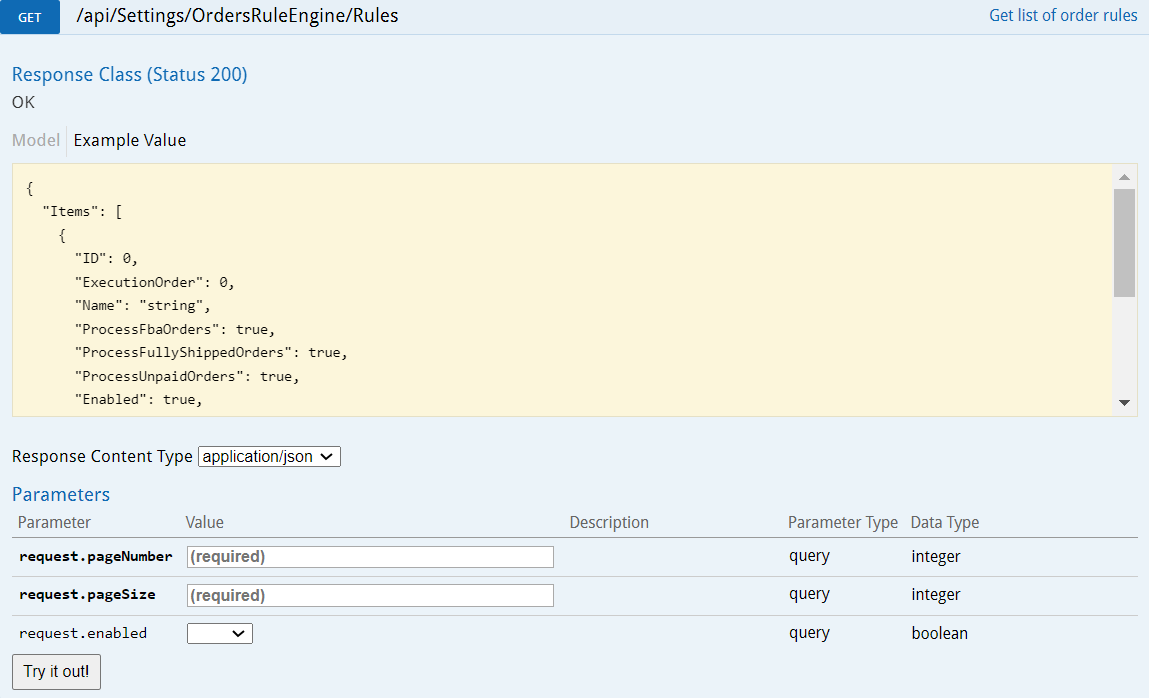Overview
This endpoint allows you to pull existing rules from the Order Rule Engine. To consume it, you must:
- Be an authenticated user.
For information on how you can authenticate, see Authentication
Once you authenticate and receive a valid token, it must be passed on to the call.
To see how you can Execute an Order Rule via API, read our dedicated article.
Endpoint
An example of such an endpoint for the XX server is:
https://xx.api.sellercloud.com/rest/api/Settings/OrdersRuleEngine/Rules
For your server endpoint will be:
https://{your_server_id}.api.sellercloud.com/rest/api/Settings/OrdersRuleEngine/Rules
Request
- Method Type: HttpGet
- Authorization: Use Bearer Token (where ‘Token’ is the token received from the token authentication)
- Header info: Content-Type: application/json
- Parameters:
| Parameters | Data Type | Description | Is Required |
| request.pageNumber | integer | Requested page number. | Yes |
| request.pageSize | integer | Records are returned in pages. This is the requested page size.
Minimum page size is 1. Maximum page size is 50. |
Yes |
| request.enabled | boolean | Allows filtering the rules by their Enabled property.
Omit or provide “null” if no filtering is needed |
No |
- If the user is authenticated, then the response will be Status Code 200 => OK and the order rules data will be included in JSON format in the response body.
- If the user is not authenticated, then the response will be Status Code 401 => Not Valid Token.
- In case of an error, the response will be Status Code 500 => Internal Server Error.
Response Body
{
"Items": [
{
"ID": 0,
"ExecutionOrder": 0,
"Name": "string",
"ProcessFbaOrders": true,
"ProcessFullyShippedOrders": true,
"ProcessUnpaidOrders": true,
"Enabled": true,
"CreatedBy": 0,
"CreatorName": "string",
"DateCreated": "2024-10-23T15:06:54.496Z",
"DateUpdated": "2024-10-23T15:06:54.496Z",
"DateLastUsed": "2024-10-23T15:06:54.496Z"
}
],
"TotalResults": 0
}
